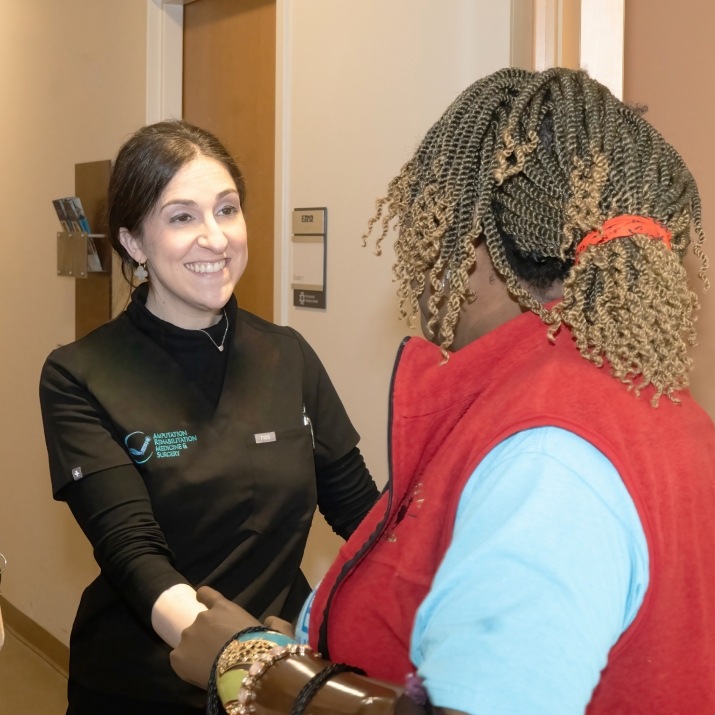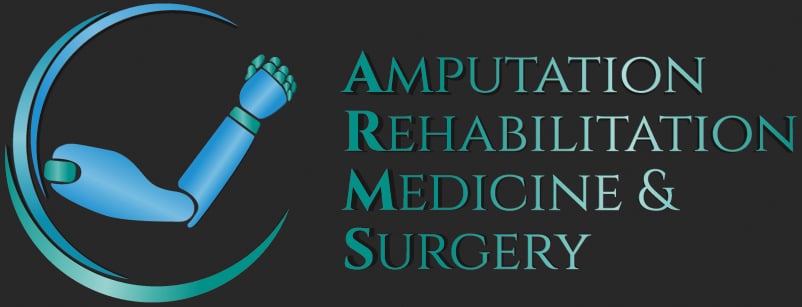
Mental Health Support for Life After Amputation
Recovery from amputation or upper-extremity surgery is more than physical—it’s an emotional journey. ARMS integrates mental health support into our multidisciplinary care team to help patients navigate the challenges of limb loss, adaptation, and recovery.

Supporting Your Mind,
Strengthening Your Recovery
Adjusting to life after limb loss can be overwhelming, and it’s natural to experience a range of emotions, from grief and frustration to hope and resilience. Through personalized counseling, coping strategies, and peer support, we help patients build confidence, regain independence, and embrace their new normal with strength and optimism.
Why Mental Health Support Is Critical to Your Journey
Work through emotional challenges to regain a sense of self

Develop strategies to manage stress & anxiety
Address mental barriers to independence
Build a mindset that supports long-term well-being
How We Help Patients
Navigating emotional recovery after limb loss can be overwhelming, but we’re here to help.
Our mental health specialists offer tailored support for every stage of the journey.
Grief and Loss Counseling
Psychological counseling post-amputation can help you process the emotions of limb loss in a safe, supportive environment.
Pain & Phantom Limb Management
Learn coping strategies after amputation to address discomfort and distressing sensations.
Prosthetic Adaptation Support
Strengthen confidence in using a prosthetic and overcome self-image concerns.
Family & Caregiver Counseling
Provide education and emotional support to loved ones involved in the recovery process.
Trauma, Anxiety & Depression Treatment
Address the psychological impact of amputation with evidence-based therapies.
Stories of Hope and Healing
Why Choose ARMS for Mental Health Support?
Mental health care at ARMS goes beyond just therapy. We take a comprehensive, personalized approach to fostering emotional well-being.
Multidisciplinary Care
Our team includes psychologists, behavioral health specialists, surgeons, and rehabilitation experts working together to ensure holistic care.
Personalized Solutions
We tailor mental health care plans to your specific challenges and goals, whether you're adjusting to limb loss, managing pain, or rebuilding confidence.
Ongoing Support
Recovery is a journey, and we'll be here for it with long-term support, resources, and therapy to help you thrive emotionally and mentally.
Frequently Asked Questions
Yes, it’s common to experience a range of emotions, including grief, anxiety, and depression. Mental health support can help you process these feelings and build coping strategies.
Our team provides behavioral therapy for limb loss patients, including counseling, stress management strategies, trauma therapy, PTSD after amputation treatment, and peer support to help you adjust and confidently move forward.
Yes. We offer counseling and education for family members and caregivers to help them understand and support your recovery journey.
Self-image struggles are natural. Our specialists provide guidance, therapy, and peer connections to help you regain confidence and embrace your new normal.
Phantom limb sensations can be distressing. We offer therapies that address both the physical and emotional impact of phantom limb pain.
No, you don’t need a referral. Our team is here to help whenever you’re ready to start your mental wellness journey.
.jpg?width=640&height=400&name=bottom%20banner%20(1).jpg)
Start Your Mental Wellness Journey
Taking the first step toward emotional healing can be challenging, but you don’t have to do it alone. Our compassionate team is here to support you.





